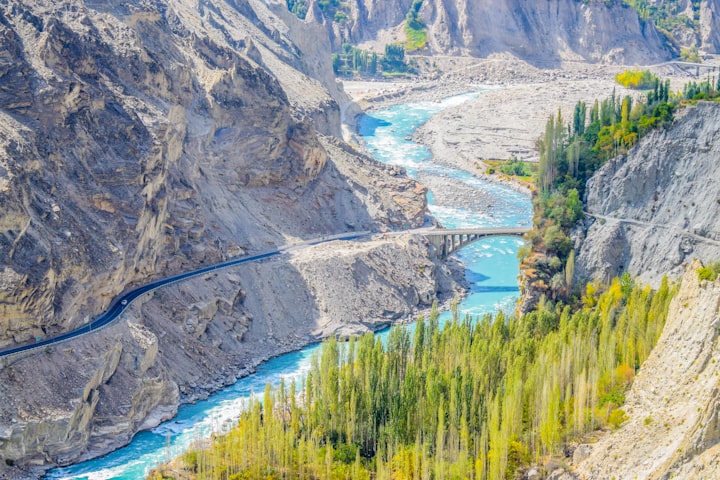
Pakistan is a country located in South Asia with a population of over 220 million people, making it the sixth-most populous country in the world. Pakistan is a diverse country, with its landscapes ranging from the towering peaks of the Himalayas in the north to the sandy beaches of the Arabian Sea in the south. The country's geography also includes several important rivers, including the Indus, which is the lifeline of the region and the source of much of Pakistan's agricultural output.
The history of Pakistan dates back to ancient times, with various kingdoms and empires ruling the region over the centuries. However, it was not until August 14, 1947, that Pakistan officially became an independent state, following the partition of India. The partition was accompanied by significant violence and bloodshed, resulting in the displacement of millions of people and the loss of countless lives. The events surrounding the partition continue to shape the politics and society of the region to this day.
Pakistan is a federal parliamentary republic that consists of four provinces, a federal capital territory, and several federally administered tribal areas. The provinces are Punjab, Sindh, Balochistan, and Khyber Pakhtunkhwa (formerly known as the North-West Frontier Province). Additionally, there is the Islamabad Capital Territory, which serves as the country's capital.
Pakistan's official language is Urdu, but English is widely spoken and used in official documentation, education, and business. Pakistan has a rich cultural heritage that reflects its diverse history and the influence of various civilizations, including the Indus Valley civilization, the Persian Empire, and the Mughal Empire. The country's cultural diversity is celebrated through its vibrant arts and entertainment industry, particularly in the realm of music and cinema. Pakistani music encompasses a range of genres, including classical, folk, and contemporary music. The country's film industry, commonly known as Lollywood, produces a significant number of films each year, with Pakistani cinema gaining international recognition in recent years.
Pakistan's economy is predominantly agricultural, with cotton, wheat, and rice being the main crops grown in the country. However, in recent years, Pakistan has also made significant strides in the manufacturing and service sectors, with the textile and IT industries leading the way. Despite these developments, Pakistan still faces several economic challenges, including a high poverty rate and a large trade deficit.
Pakistan is also known for its significant military presence, with the Pakistan Armed Forces being one of the largest in the world. The military has played a crucial role in Pakistan's politics and governance, with several military coups and interventions occurring throughout the country's history. The relationship between the military and civilian leadership continues to be a significant issue in Pakistani politics.
Pakistan is a predominantly Muslim country, with Islam being the official religion. However, the country also has significant minorities of Hindus, Christians, and Sikhs, among others. While religious diversity is generally respected, Pakistan has also experienced sectarian violence and persecution, particularly against its minority Shia population. The country has made efforts to promote religious harmony and tolerance, but these efforts have been challenged by the ongoing threat of extremism and terrorism.
Pakistan is a nuclear-armed country, having developed nuclear weapons in response to its long-standing rivalry with neighbouring India. The country's nuclear program has been a significant source of controversy and international scrutiny. Pakistan's relationship with India continues to be strained, with ongoing disputes over the region of Kashmir and other issues.
In recent years, Pakistan has been making significant strides in terms of human development, with improvements in areas such as health, education, and gender equality. However, the country still faces several challenges in these areas, with issues such as poverty, illiteracy, and gender-based violence remaining prevalent.
Pakistan's future is likely to be shaped by a range of factors, including its relations with its neighbours, economic development,
About the Creator
Reader insights
Nice work
Very well written. Keep up the good work!
Top insight
Eye opening
Niche topic & fresh perspectives





Comments (1)
Zabardast. Pakistan is a beautiful country with full of natural resources. Pakistani's are loving and always helpful in hardtimes